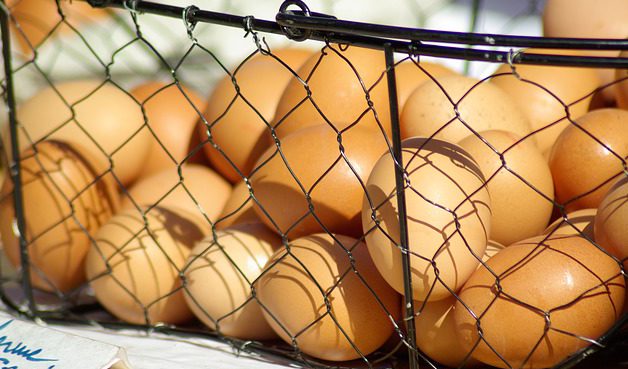Cal-Maine Foods announced it has agreed to acquire all assets of Happy Hen Egg Farms Inc. – a commercial producer, processor, and distributor of shell eggs located near Harwood and Wharton, Texas, for an undisclosed amount.
Under the terms of the deal, Cal-Maine will acquire all commercial assets including production and processing facilities with the capacity for approximately 350,000 laying hens, and all related distribution facilities.
Operating within a single supply chain, Cal-Maine is solely active in the production, grading, packaging, marketing, and distribution of shell eggs including specialty products such as nutritionally enhanced, cage free, organic and brown eggs. Sales for the group are concentrated in the southwest, southeast, Midwest, and mid-Atlantic regions of the U.S.
Selling 1.06 billion dozen shell eggs in fiscal year 2015, representing 23 percent of the U.S. domestic shell egg market, Jackson, Mississippi-based Cal-Maine is the largest producer and marketer of shell eggs in the U.S. The company also has the largest flock in the U.S. with a total of 33.9 million layers and 9.4 million pullets and breeders, according to the company’s website.
Since 1989, Cal-Maine has pursued a course of consolidation within the shell egg space, completing 18 acquisitions ranging in size from 600,000 layers to 75 million layers, according to its company website.
Less than one year ago, Cal-Maine announced it had agreed to acquire all assets of Foodonics International Inc., and its related entities doing business under the name Dixie Egg Company. Through the transaction, Cal-Maine gained commercial egg production and processing facilities with a capacity for 1.6 million laying hens and all related feed production, milling, and distribution facilities located in Georgia, Alabama, and Florida. Dixie Egg also brought with it contracts in place for an additional 1.5 million laying hens.
Additionally, Cal-Maine also gained the Egg-Land’s Best Inc., licensing franchise which brings with it markets located in Alabama, Florida, Georgia, Puerto Rico, the Bahamas, and Cuba.
Prior to the Dixie Egg acquisition, in response to customer demand for cage-free and specialty eggs, Cal-Maine formed Red River Valley Egg Farm – a joint venture with the second largest egg company in the U.S. – Indiana-based, family-owned Rose Acre Farms. Through the new venture, the two companies built and operate a state-of-the-art shell egg production facility in the Red River region of Texas with initial capacity for 1.8 million laying hens and the potential for expansion to house 2.9 million hens.
As of March 2016, the cage-free facility was being stocked with hens, with estimates that it would be fully stocked by early this year.
Despite ongoing consolidation, the U.S. egg industry remains greatly fragmented. As of December 31, 2015 there were 56 egg producers owning a minimum of one million hens representing 96 percent of the total industry’s layers with the ten largest producers owning about 50 percent of the total industry layers according to Cal-Maine. These numbers indicate to Cal-Maine an industry that is still positioned for further consolidation, and the company states it will “plan to capitalize upon opportunities as they arise.”
The U.S. Department of Agriculture (USDA) states that as of June 2016, less than 30 million of the more than 300 million laying hens in the U.S. were being kept in cage-free environments, meaning that approximately only 10 percent of the total U.S. egg supply was considered to be within the organic, pasture-raised, or indoor cage-free production pipeline.
The department goes on to state that considering consumer demand trends, and an average consumption rate of 260 eggs per person per year, more than half of the industry’s production will need to covert to cage-free production systems by 2025. This translates to the need to build cage free facilities for another 140 million hens at a cost of $5.6 billion over that time period.
This change, however, may need to be accomplished on an accelerated timeline as Politico indicates that major retailers, food producers, and quick serve restaurants including Costo, BJ’s Warehouse Club, McDonalds, Trader Joe’s, Dunkin’ Donuts, Taco Bell, and Mondelez are just some of the key players in the food sector demanding that their suppliers shift to cage-free eggs within five to ten years.
-Lynda Kiernan
Lynda Kiernan is Editor with GAI Media and daily contributor to GAI News. If you would like to submit a contribution for consideration please contact Ms. Kiernan at lkiernan@globalaginvesting.com

